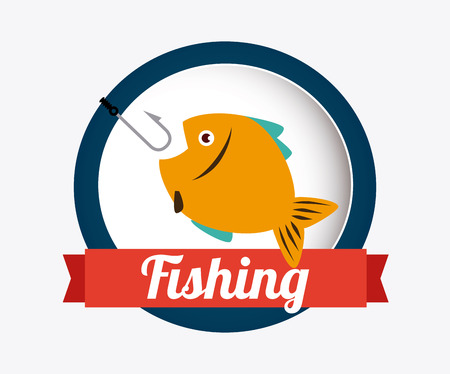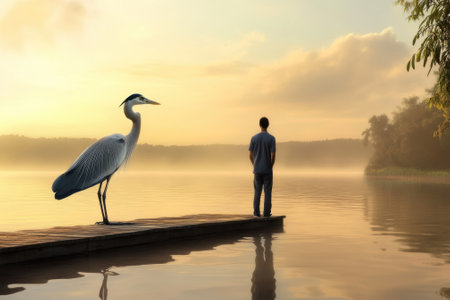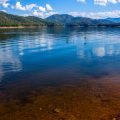1. Choosing the Right Fishing Destinations
When planning a group RV caravan focused on fishing adventures, one of the most exciting steps is picking your destinations. The U.S. is full of incredible RV-friendly fishing spots that offer not just great fishing but also beautiful views, well-equipped campgrounds, and easy access for multiple RVs traveling together.
What Makes a Great Fishing Destination for an RV Caravan?
Look for places that offer:
- Seasonal Fish Availability – Different states and regions have peak seasons for specific fish species.
- Scenic Beauty – A stunning lake or river view adds to the overall experience.
- RV-Friendly Campgrounds – Easy parking, hookups, and amenities for groups.
- Local Fishing Regulations – Make sure everyone can fish legally with proper licenses and knowledge of local rules.
Top RV-Friendly Fishing Spots Across the U.S.
Here’s a quick look at some popular destinations that cater to both anglers and RV travelers:
| Location | Main Fish Species | Best Season | Campground Features |
|---|---|---|---|
| Lake Guntersville, Alabama | Largemouth Bass | Spring & Fall | Full hookups, boat ramps, group sites |
| Klamath River, California | Steelhead, Salmon | Fall | Riverside camping, limited hookups, scenic views |
| Lake Erie, Ohio | Walleye, Perch | Summer & Early Fall | Lakeside campgrounds, marinas nearby, dump stations |
| Missouri River, Montana | Trout | Spring through Fall | Semi-primitive sites, fishing access points, wildlife viewing |
| Florida Keys, Florida | Tarpon, Snapper | Late Spring to Summer | Tropical RV parks, full amenities, boat rentals available |
Tips for Picking Group-Friendly Campgrounds
A successful RV caravan depends on good planning. When selecting campgrounds near your fishing destinations:
- Call Ahead: Make group reservations in advance—popular spots fill up fast.
- Amenities Matter: Look for clean restrooms, laundry facilities, and common areas where your group can gather after a day of fishing.
- Accessibility: Ensure roads are suitable for larger rigs and there’s enough space to park multiple RVs together.
- Pets and Kids: If youre traveling with families or pets, double-check campground rules.
Check Local Regulations Before You Go
No matter where you’re headed, always review the local fishing laws. These can vary by state and even by body of water. Visit each state’s fish and wildlife website to confirm license requirements and bag limits. It’s also a good idea to download any official apps they may offer for real-time info while youre on the road.
Your Next Step?
Narrow down your list of top destinations based on what kind of fishing your group enjoys most—and get ready to hit the road!
2. Coordinating with the Caravan Group
Once youve got your fishing-focused RV caravan idea off the ground, the next big step is making sure everyone in the group is on the same page. Good coordination is key to a smooth and fun journey. Here are a few simple ways to keep things organized and stress-free.
Set Up Clear Communication Methods
Before hitting the road, decide how your group will stay in touch. Whether youre dealing with campground changes, weather updates, or fishing location swaps, having solid communication tools is essential. Here are some popular options:
| Communication Method | Best For |
|---|---|
| Group Text (iMessage, SMS) | Quick updates and alerts |
| WhatsApp / GroupMe | Ongoing conversations and photo sharing |
| Zello (Push-to-Talk App) | Walkie-talkie-style real-time talk |
| CB Radios or Walkie Talkies | Areas with poor cell signal |
| Google Docs/Sheets | Shared itineraries and checklists |
Assign Roles Within the Group
A successful caravan trip works best when everyone pitches in. Assigning roles helps divide responsibilities so no one gets overwhelmed. Heres an example of how you might break it down:
| Role | Description |
|---|---|
| Trip Coordinator | Main planner who keeps track of destinations and bookings |
| Lead Driver/Navigator | Helps plan routes and leads the caravan on travel days |
| Campground Liaison | Makes campsite reservations and checks in at each stop |
| Fishing Scout | Researches local fishing spots and regulations at each stop |
| Meal Planner/Cookout Lead | Keeps group meals organized, especially fish fry nights! |
| Safety Officer/First Aid Contact | Keeps emergency kits stocked and handles minor issues on the road |
Create a Shared Schedule or Itinerary
A shared schedule helps avoid confusion and keeps everyone on track. You don’t need anything fancy—just a simple chart showing travel days, planned activities, free time, and key info like check-in times or boat rentals.
Sample Weekly Itinerary:
| Day | Activity |
|---|---|
| Monday | Travel day – Depart from home base, meet at first campground by 5 PM |
| Tuesday | Morning fishing at Lake A; afternoon free time; evening group cookout |
| Wednesday | Drive to next site; optional stop at tackle shop en route; arrive by 4 PM |
| Thursday | Guided fishing tour (booked in advance); dinner out as a group |
| Friday | You-pick-it day – open fishing or relaxing; campfire stories at night |
| Saturday | Packing up; final group breakfast before departure |
| Sunday | Return home or continue solo adventures |
Troubleshooting Tips for Group Coordination on the Road
- If someone falls behind while driving, regroup at pre-planned checkpoints.
- Create a “Plan B” for bad weather days—indoor activities like visiting a local bait shop or fishing museum can be great alternatives.
- If theres a last-minute change, use your main group chat to alert everyone quickly.
- Avoid over-scheduling—leave plenty of downtime for spontaneous fun or rest.
The more organized your group is before you roll out, the more relaxed and enjoyable your fishing adventure will be. With clear roles, strong communication, and a flexible but structured plan, your RV caravan can focus on what matters most: catching fish and making memories together.

3. Outfitting Your RVs for Fishing Adventures
To make your fishing-focused RV caravan trip smooth and enjoyable, it’s essential to set up each RV with the right gear and amenities. This helps everyone stay organized, keeps the fish fresh, and makes mealtime a breeze after a day on the water.
Fishing Gear Storage
Space is limited in an RV, so smart storage solutions are key. Use vertical rod holders mounted inside closets or along walls. Install under-bed bins or ceiling-mounted racks for tackle boxes and nets. Keeping everything in place ensures quick access and protects your gear while youre on the move.
Bait Refrigerators
A dedicated bait fridge can be a game changer. It keeps live bait cool and separate from your food items. Small portable fridges or cooler-style bait tanks that run off 12V power are ideal for RV use. Make sure they’re securely strapped down during travel.
Outdoor Cooking Setups
Nothing beats cooking up your fresh catch right at the campsite. Equip your RV with a portable grill, propane stove, or griddle. A fold-out prep table and canopy help create a comfortable outdoor kitchen environment where everyone can gather and enjoy the evening meal together.
Recommended Outdoor Cooking Gear:
| Item | Description |
|---|---|
| Portable Propane Grill | Easy to transport; great for grilling fish fillets and sides |
| Folding Prep Table | Provides extra space for cleaning and prepping meals |
| Canopy/Tent Shelter | Keeps you shaded and dry while cooking outdoors |
Fish Cleaning Stations
No one wants to clean fish inside their RV! Set up a designated outdoor cleaning station with running water if available, or bring a portable wash basin and cutting board setup. A folding fish cleaning table with drain holes makes cleanup easy and hygienic. Don’t forget trash bags and gloves to keep things tidy.
Pro Tip:
If multiple RVs are traveling together, consider assigning one rig as the “base camp” for cooking and cleaning duties to streamline setups and reduce redundancy.
4. Planning Meals and Campfire Gatherings
One of the best parts of any RV fishing caravan is winding down after a day on the water with good food and great company. Planning group meals and nightly campfire gatherings helps bring everyone together and creates memorable experiences. Here’s how to make it all come together smoothly.
Organize Group Meals
Cooking and eating as a group not only saves time and resources but also strengthens camaraderie. Plan out shared meals in advance and assign responsibilities so that everyone contributes. Consider rotating cooking duties or having themed nights like taco Tuesday or BBQ Saturdays. Don’t forget to include everyones dietary needs when planning the menu.
Fresh-Catch Cookouts
Nothing beats the taste of freshly caught fish cooked right at your campsite. After a successful day of fishing, plan a cookout where everyone can prepare and enjoy their catch together. Bring portable grills, cast iron pans, or even try foil packet recipes for easy cleanup. Make sure to follow local guidelines for cleaning and cooking fish.
| Type of Fish | Popular Cooking Method | Suggested Sides |
|---|---|---|
| Trout | Grilled with herbs and lemon | Corn on the cob, coleslaw |
| Bass | Pan-fried in butter and garlic | Potato salad, baked beans |
| Catfish | Breaded and deep-fried | Mac & cheese, cornbread |
Set Up Nightly Campfires
A campfire is more than just warmth—its where stories are told, laughter is shared, and plans for the next day’s fishing adventure are made. Designate a safe area at each campsite for fires, bring plenty of firewood (check local fire regulations), and have seating arranged in a circle so everyone feels included.
Activities Around the Campfire
- Fishing Tales: Share stories about the one that got away—or didn’t!
- S’mores Station: Set up a table with graham crackers, chocolate, marshmallows, and skewers.
- Acoustic Music: If someone plays guitar or harmonica, encourage them to bring it along.
- Trip Recaps: Review photos from the day or discuss tomorrow’s fishing spot.
By planning your meals and evening hangouts in advance, you’ll make your RV fishing trip even more fun and connected for everyone involved. Whether its enjoying grilled trout under the stars or swapping stories by the fire, these shared moments are what make caravan adventures truly special.
5. Safety, Permits, and Local Fishing Laws
When organizing a group RV caravan centered around fishing, its important to make sure youre following all the rules and staying safe along the way. Every state in the U.S. has its own fishing regulations, so doing a little homework before you hit the road will help your trip go smoothly.
Fishing Licenses by State
Before casting a line, everyone in your group needs to have the proper fishing license for the state youre visiting. Some states offer short-term licenses for visitors, while others may require additional permits for specific types of fish or water bodies.
| State | Resident License | Non-Resident License | Online Purchase |
|---|---|---|---|
| California | Required | Required | Yes |
| Texas | Required | Required | Yes |
| Florida | Required | Required | Yes |
| Montana | Required | Required | Yes |
| Minnesota | Required | Required | Yes |
You can typically purchase licenses online through each states Department of Fish and Wildlife website. It’s a good idea to check expiration dates and print copies or save digital versions on your phone.
Understanding Local Fishing Rules
Laws can vary not just by state, but also by lake or river. Common regulations include size limits, catch limits, seasonal restrictions, and bait rules. For example, some lakes only allow artificial lures, while others have specific “catch-and-release” zones. Always check local signage and talk to park rangers or bait shop staff if you’re unsure.
RV Travel Safety Tips for Caravans
Your group’s safety on the road is just as important as knowing where to fish. Here are a few tips to keep your RV caravan safe and organized:
- Pre-Trip Inspections: Check tire pressure, brakes, lights, and towing connections before every leg of the trip.
- Radio Communication: Use walkie-talkies or CB radios to stay in touch between vehicles when cell service is unreliable.
- Lead and Sweep Vehicles: Assign one RV to lead and another to bring up the rear; it helps keep everyone together.
- Emergency Plan: Share emergency contacts and routes with all participants in case someone gets separated from the group.
- Campsite Safety: Follow fire safety rules at campgrounds and store food properly to avoid attracting wildlife.
Safety Checklist Before Departure:
- Buckle up seatbelts in all RVs.
- Tanks (propane, water) securely closed and fastened.
- Ladders, chairs, and gear stowed away safely.
- Sufficient fuel levels for long stretches without gas stations.
- First-aid kits stocked in each vehicle.
A successful fishing RV caravan isn’t just about catching fish—it’s about having peace of mind knowing that everyone is legal, prepared, and safe throughout the adventure.


